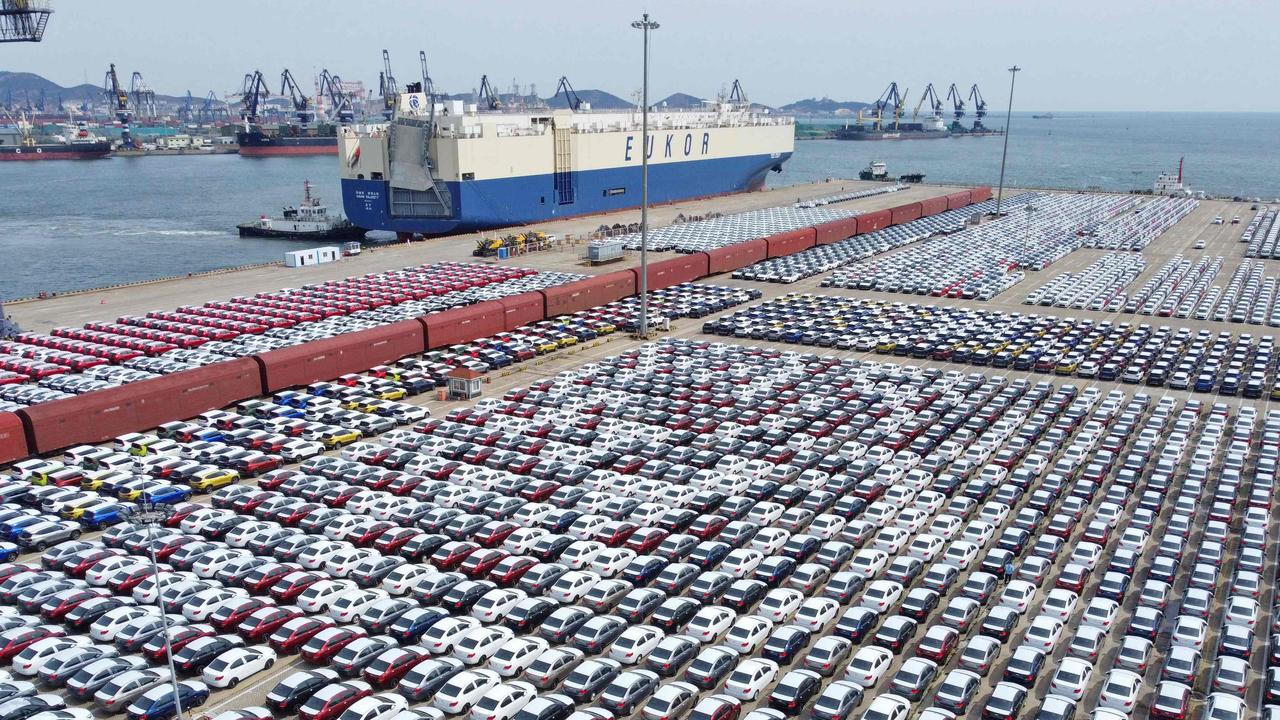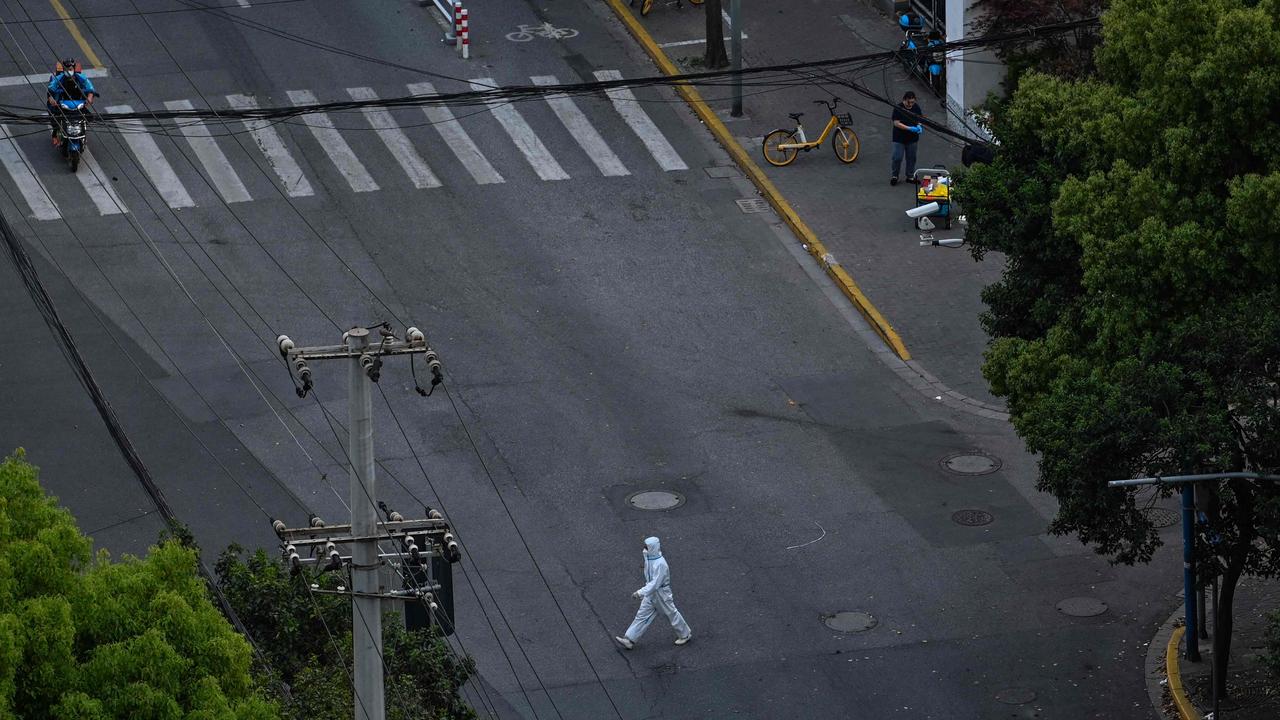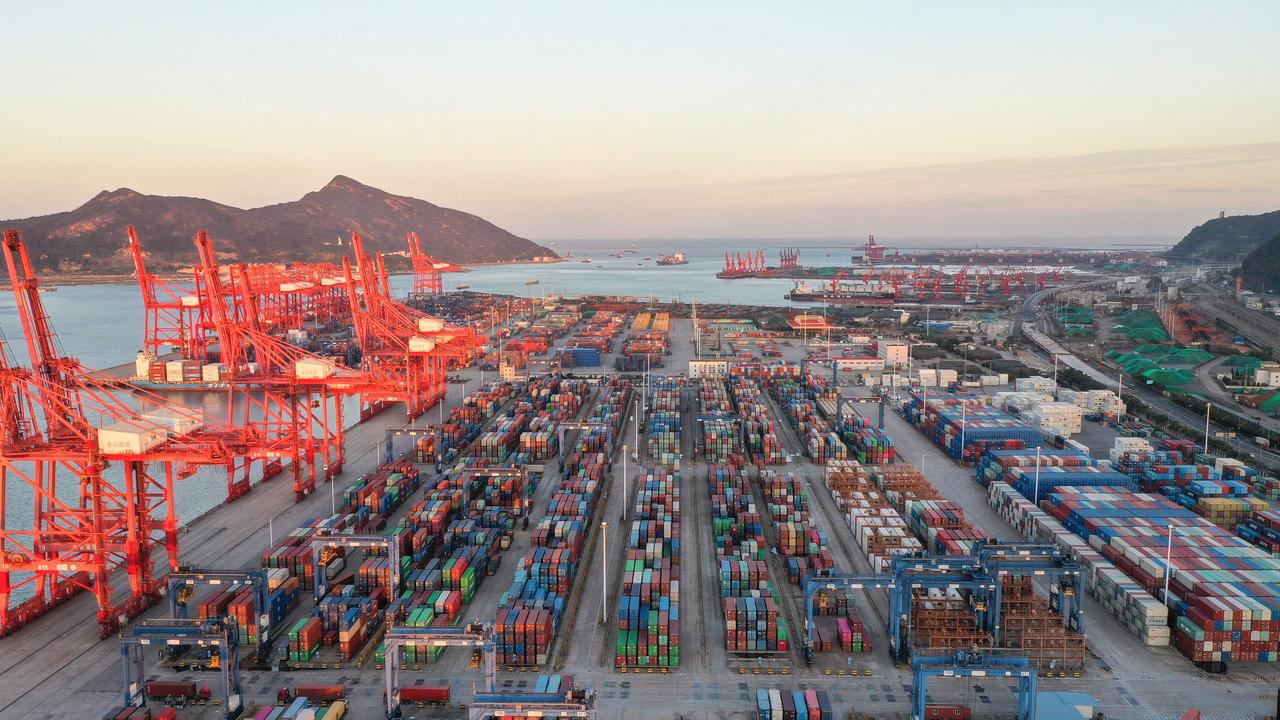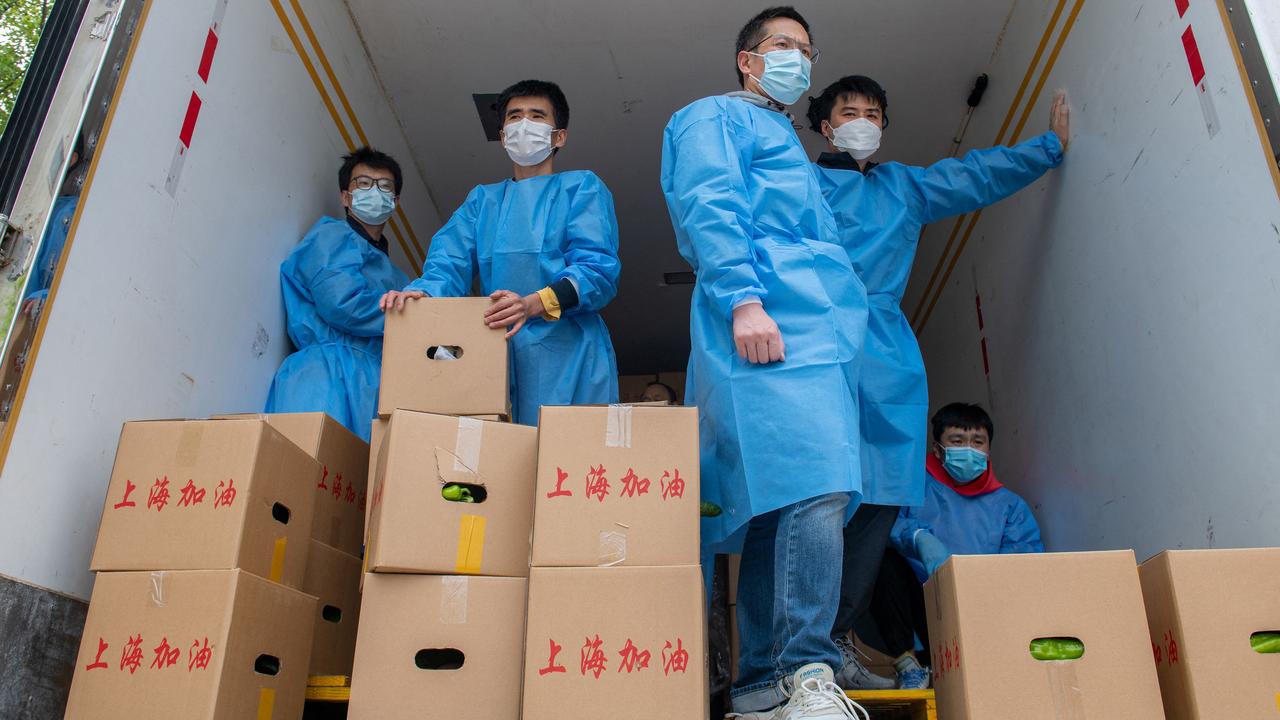Shocking way China’s lockdown will ruin Australia’s economy
A chilling warning has been issued that China’s zero-Covid policy is going to inflict “damage” globally, with more cost of living pain headed our way.
China’s brutal strategy to keep Covid cases at zero means nearly 400 million people are in lockdown across the country, but there are warnings the “damage” being inflicted on the world’s second biggest economy will also hit Australia hard.
An expert has cautioned that Australians can expect rolling disruptions to the supply of goods and inflated prices as China continues to pursue the harsh policy.
Two of China’s major cities, Shanghai and Guangzhou have 27 million and 19 million residents in lockdown respectively, as the country deals with its worst outbreak of the virus since the pandemic began.
Lockdowns have had a chilling effect, shutting factories – including some of the top companies around the world such as car manufacturers GM, Tesla and Ford as well as Apple and Sony.


Meanwhile the Shanghai port, which is the world’s busiest, has been transformed into congested chaos and left at a standstill.
As a result it has seriously hampered global trade, with one in 10 items stuck in ports across China, with blockages in global trade having surged to their highest level since last September.
Shanghai is also home to the world’s third biggest air cargo centre but airlines have cancelled all flights in and out of the city.
The zero Covid policy is causing “rolling damage” to China’s economy, said
Michael Shoebridge, director of defence, strategy and national security at the Australian Strategic Policy Institute.
This includes dislocating and disabling export production for things such as iPhones and cars and also causing domestic trouble with shortages of food and medical supplies, yet Chinese president Xi Jinping won’t give up, he warned, even though public anger and protests have grown.
“Economic damage doesn’t worry Xi enough for him to make the embarrassing admission that China’s Covid strategy, which he owns and leads, is now failing in the face of highly contagious variants like Omicron,” he told news.com.au.
“That would involve Xi admitting Chinese vaccines are not as effective as Western ones, and also admitting the Chinese government failure to get its elderly and vulnerable people vaccinated.
“Xi is also using Covid to gain more control over the Chinese people and reduce China’s interaction with the democratic world. Economic damage to achieve this is bearable.”

The latest lockdowns come on top of the Chinese economy being battered by its property market meltdown, with major construction company Evergrande battling to stay afloat for much of last year, as well as a crackdown on the tech sector.
While China’s economy grew 4.8 per cent in the first three months of the year compared to the same time last year, it missed the country’s annual growth target of 5.5 per cent.
It’s concerning as the slower growth came at a time when the country was mostly open with the more severe lockdowns only kicking in around March.
But it’s grim news for the March figures with retail sales plummeting 3.5 per cent, according to the National Bureau of Statistics, while trade data also showed a sharp slowdown.
Overall, there are 45 Chinese cities in lockdown, representing 40 per cent or $7.2 trillion annually for the Chinese economy, according to data from global financial services group Nomura Holdings.
“Global markets may still underestimate the impact [of China’s lockdowns on the world], because much attention remains focused on the Russian-Ukraine conflict and US Federal Reserve rate hikes,” Nomura’s chief China economist Lu Ting wrote in a note last week.

Yet the slowdown in China’s economy will have a serious knock-on effect on global growth, including in Australia.
“For Australia and the rest of the world, we should expect rolling disruption to goods either produced in China or dependent on an input from China,” Mr Shoebridge said.
“We can expect inflation of prices for such short supply items such as electronics and cars.
“But lower Chinese demand for energy including oil, gas and coal may moderate the prices that [Russian President Vladimir] Putin’s war have created for things like petrol.”
Last week China’s Ministry of Industry and Information Technology said it had sent a task force to Shanghai to work on a plan to resume production at 666 key manufacturers in the locked down city.
But it’s already too late. China’s lockdowns are likely to cost at least $62 billion in lost economic output per month, according to research from the Chinese University of Hong Kong.

The World Trade Organisation has also warned of a worst-case scenario involving countries decoupling from each other economically, spurred on by Russia’s invasion of Ukraine, which could reduce long-term global growth by 5 per cent.
However, many experts believe this is already occurring as countries look to source more goods locally as it becomes increasingly difficult to separate economic issues from broader concerns such as national security, given the worry around China’s “friendship” with Russia.
Mr Shoebridge said it’s clear that Australia needs to break away from trading with countries like China and Russia.
“The bigger picture from Xi’s political and economic strategy and Putin’s war is to further break the idea of global supply chains and push economies and governments to disentangle from those we can’t trust like Russia and China and work more closely with those we can,” he said.
“That’s the same realisation we see happening in Europe.”

More Coverage
The disruption caused by China’s pandemic strategy is going to continue to reverberate across the world too.
“The impact on China is major and the knock-on effects on the global economy are quite significant,” Michael Hirson, Eurasia Group’s practice head for China and Northeast Asia told CNN.
“I think we’re in for more volatility and economic and social disruption for at least the next six months.”






